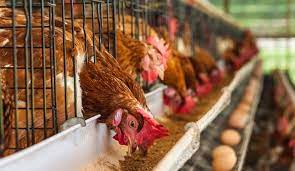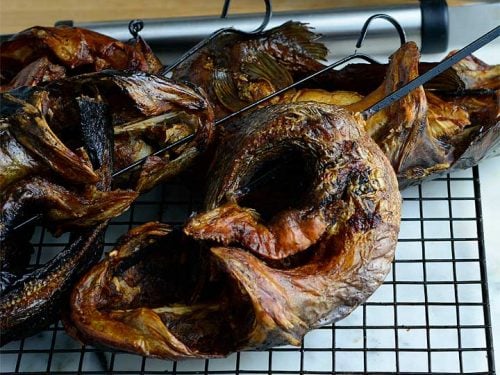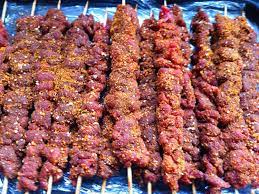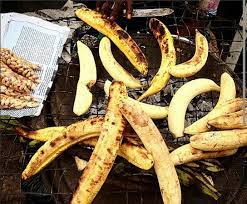
Certain commonly consumed foods are more likely to cause food poisoning than others, especially if they are improperly stored, badly prepared or cooked, or not hygienically stored. Read on:
Poultry
Nigerians love to eat chicken and turkey, but raw and undercooked poultry such as chicken and turkey has a high risk of causing food poisoning due to Campylobacter and Salmonella bacteria that are commonly found in the guts and feathers of the birds. Contamination usually occurs during the slaughtering process. The safest way to eliminate these harmful bacteria is to cook the meat thoroughly. Do not wash raw meat and ensure that raw meat does not come in contact with utensils, kitchen surfaces, chopping boards, and other foods to avoid cross-contamination.
Vegetables and leafy greens
Vegetables and leafy greens can often carry harmful bacteria such as E. coli, Salmonella and Listeria. They are a common source of food poisoning, especially when eaten raw such as lettuce, spinach, cabbage, celery, and tomatoes. To minimise risk, always wash vegetable leaves thoroughly before eating. Do not purchase pre-sliced salad items, avoid pre-prepared salads that have been left to sit at room temperature.

Smoked fish
Smoked fish is a delicacy in many Nigerian homes, but it could be dangerous to human health if not done properly. The potential danger associated with the smoking of fish over wood or charcoal is Polycyclic Aromatic Hydrocarbons (PAH). This is a class of carcinogens formed when wood or charcoal is burned and is deposited on the food being roasted. They are carcinogenic.
Fresh fish
Fish that has not been stored at the correct temperature has a high risk of being contaminated with histamine, a toxin produced by bacteria in fish. Histamine is not destroyed by normal cooking temperatures and results in a type of food poisoning known as scombroid poisoning. To reduce risk, purchase only fresh and well-refrigerated seafood and ensure you keep it chilled and refrigerated before cooking. Cook thoroughly.

Suya (savoury meat)
Grilled and barbecued beef and chicken popularly called suya, is another delicacy that Nigerians cherish. Research has shown that there is a link between consumption of suya and increased risk of cancer in the country. Cooking beef over an open fire with the oil from the meat undergoes complex chemical reactions that produce carcinogenic toxins known as Heterocyclic Amines, HCAs. To reduce this effect is to eat suya in moderation and always together with slices of onions, cabbages, and tomatoes that act as an antidote to the effect of the oil from the suya.

‘Agege’ bread
Loaves of bread that are of the Agege bread variety are a popular staple in the Southwest part of Nigeria, they are however undesirable to health. The bread is made from highly processed white flour and contains potassium bromate, a flour enhancer and, unfortunately, a known carcinogen that damages the nervous system. Avoid consumption by all means.
Rice
Rice is a common staple for more than half the world’s population, but it could be a high-risk food. Uncooked rice can be contaminated with spores of Bacillus cereus, a bacterium that produces toxins that cause food poisoning. These spores can survive in uncooked rice also survive the cooking processes. If cooked rice is left standing at room temperature, the spores grow into bacteria that thrive and multiply. The longer rice is left standing at room temperature, the more likely it will be unsafe to eat. To reduce your risk, serve rice as soon as it has been cooked and refrigerate leftovers as quickly as possible after cooking. When reheating cooked rice, make sure it is steaming hot.
Eggs
While eggs are incredibly nutritious and versatile, they can also be a source of food poisoning when they’re consumed raw or undercooked. Eggs can carry Salmonella bacteria, which can contaminate both the eggshell and the inside of the egg. Do not consume eggs with a cracked or dirty shell. Where possible, choose pasteurized eggs in recipes that call for raw or lightly cooked eggs.

Boli (roasted plantain)
The argument against boli, roasted corn, and other street foods roasted over open wood fires is that the smoke from charcoal contains polycyclic aromatic hydrocarbons (PAH) such as bexopyrenes that are carcinogenic and can cling to the surface of the food. These compounds contribute to the development of colorectal cancer, liver cancer, helicobacter pyloris and other infections of the gastrointestinal tract. Minimise the consumption or avoid it completely.
Snail
In addition to containing protein and low amounts of fat, snails are good sources of iron, calcium, Vitamin A, and a number of other minerals. Snail dishes are commonly served as snacks in bars and restaurants; however, a number of the giant, wild snails and some freshwater snails are known to contain toxins and habour dangerous parasites particularly in the slime. Consumption of snail that is not well cleaned and thoroughly cooked is potentially unhealthy.
Bush meat (Grasscutter)
Bush meat is an important delicacy and source of protein for many Nigerians, however, it’s known to be a host of deadly zoonotic diseases such as the Ebola virus which can be transmitted to humans during the preparation and consumption of the infected bushmeat.
Groundnuts
Groundnuts are a popular snack in Nigeria. Roasted groundnuts that are not properly dried or preserved can habour a group of fungi or moulds that produce a poisonous substance known as aflatoxins that can contaminate food crops and pose a serious health threat. Consumption of large doses of aflatoxins leads to acute poisoning (aflatoxicosis) that can cause liver damage and liver failure.
*Culled from Vanguard














